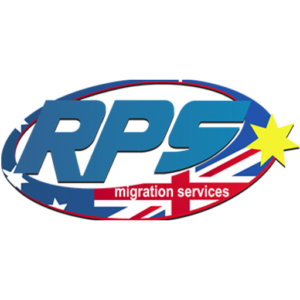Our Services
Doctors

Doctors play a vital role in the Australian healthcare system, providing essential medical care and expertise to patients across various settings. They are highly trained professionals who diagnose and treat illnesses, manage chronic conditions, perform surgeries, and coordinate patient care.
Here are some key aspects of the role of doctors in the Australian healthcare system:
General Practitioners (GPs) serve as the first point of contact for most patients seeking medical care. GPs provide comprehensive primary healthcare services, including preventive care, health promotion, diagnosis of common illnesses, management of chronic conditions, and referrals to specialists when necessary.
Doctors with specialized training work as specialists in various fields such as cardiology, oncology, neurology, pediatrics, obstetrics and gynecology (OB/GYN), psychiatry, surgery, and many more. These specialists have advanced knowledge and skills in their respective areas of expertise.
Doctors play a crucial role within hospitals by providing acute medical care to patients admitted for various reasons such as emergencies or planned surgeries. They lead multidisciplinary teams that include nurses and other healthcare professionals to ensure coordinated patient management.
Doctors order diagnostic tests such as blood tests, imaging scans (X-rays or MRIs), biopsies or pathology tests to aid in diagnosing diseases or monitoring treatment progress. They interpret test results to guide treatment decisions.
General Practitioners (GPs) serve as the first point of contact for most patients seeking medical care. GPs provide comprehensive primary healthcare services, including preventive care, health promotion, diagnosis of common illnesses, management of chronic conditions, and referrals to specialists when necessary.
Doctors order diagnostic tests such as blood tests, imaging scans (X-rays or MRIs), biopsies or pathology tests to aid in diagnosing diseases or monitoring treatment progress. They interpret test results to guide treatment decisions.
Doctors with specialized training work as specialists in various fields such as cardiology, oncology, neurology, pediatrics, obstetrics and gynecology (OB/GYN), psychiatry, surgery, and many more. These specialists have advanced knowledge and skills in their respective areas of expertise.
Doctors play a crucial role within hospitals by providing acute medical care to patients admitted for various reasons such as emergencies or planned surgeries. They lead multidisciplinary teams that include nurses and other healthcare professionals to ensure coordinated patient management.
The Australian healthcare system recognizes the importance of doctors’ contributions by providing comprehensive training programs, competitive salaries, and opportunities for professional development. Doctors undergo rigorous education and training that includes completing a medical degree followed by postgraduate training through internships, residencies, and specialty training programs.
Overall, doctors are essential pillars of the Australian healthcare system who provide expert medical care across various settings while ensuring patient well-being and promoting better health outcomes.
Contribution of Overseas-Trained Doctors in Australia
Overseas-trained doctors make a significant contribution to the Australian healthcare system, bringing diverse skills, knowledge, and experiences that enrich the medical workforce. They play a crucial role in addressing workforce shortages, particularly in rural and remote areas where access to healthcare services can be limited. Here are some key contributions of overseas-trained doctors in Australia:

Filling Workforce Gaps
Overseas-trained doctors help address shortages of medical professionals in underserved areas by working in regional, rural, and remote communities where there may be limited access to healthcare services. Their presence helps ensure that patients in these areas receive necessary medical care.

Cultural Diversity
Overseas-trained doctors bring cultural diversity to the Australian healthcare system. They often have firsthand experience with different cultures and languages, which enables them to provide culturally sensitive care and effectively communicate with patients from diverse backgrounds.

Specialist Expertise
Many overseas-trained doctors possess specialized expertise or qualifications in specific medical fields or subspecialties that may be scarce within Australia's domestic workforce. Their knowledge and skills contribute to improving patient outcomes by providing specialized care options.

Research & Innovation
Overseas-trained doctors often bring research experience from their home countries or other international settings. They contribute to research projects within Australia's academic institutions or collaborate on global health initiatives, advancing medical knowledge and innovation.

Telehealth & Rural Outreach
With the increasing use of telehealth services, overseas-trained doctors can provide valuable support through virtual consultations for patients located remotely or those who face barriers accessing traditional face-to-face appointments.

Medical Education & Training
Many overseas-trained doctors also engage in teaching roles at universities or participate as supervisors/mentors for junior colleagues during clinical training programs such as internships and residencies. Their expertise enhances the education of future generations of Australian healthcare professionals.

Multidisciplinary Collaboration
Overseas-trained doctors work collaboratively with other healthcare professionals such as nurses, allied health practitioners, and specialists to provide comprehensive patient care. Their diverse backgrounds contribute to a multidisciplinary approach that benefits patients.

Global Health Experiences
Overseas-trained doctors often bring valuable experiences from different healthcare systems worldwide. They can share best practices, alternative treatment approaches, and innovative strategies that have proven successful in other countries.
It is important to note that overseas-trained doctors must meet the requirements set by the Australian Medical Council (AMC) and obtain registration with the Medical Board of Australia (MBA) before practicing medicine in Australia. This ensures they meet the necessary standards of competency and safety.
The contributions of overseas-trained doctors are highly valued within the Australian healthcare system as they help address workforce shortages, enhance cultural diversity, bring specialized expertise, contribute to research and innovation, support rural outreach efforts, participate in medical education programs, and collaborate with other healthcare professionals for optimal patient care.
Registration of Doctors

1. Medical Degree
Doctors must hold a recognized medical degree from an accredited institution. This typically involves completing a Bachelor of Medicine, Bachelor of Surgery (MBBS) or an equivalent degree.

2. English Language Proficiency
Overseas-trained doctors need to demonstrate English language proficiency by providing evidence such as achieving satisfactory scores in approved English language tests like IELTS or OET.

3. Competent Authority Pathway
Overseas-trained doctors who have completed their medical training in countries recognized by AHPRA as having comparable healthcare systems can apply for registration through the Competent Authority Pathway. This pathway allows for streamlined assessment and recognition of qualifications.

4. Standard Pathway
Doctors who do not qualify for the Competent Authority Pathway or have trained in countries not recognized under this pathway can apply through the Standard Pathway. This involves a more comprehensive assessment process, including verification of qualifications, supervised practice requirements, and potentially passing written and clinical examinations.

5. Provisional Registration
Upon successful completion of either pathway, doctors may be granted provisional registration which allows them to work under supervision while gaining further experience and fulfilling any additional requirements set by AHPRA.

6. General Registration
After completing any necessary supervised practice period or other specified requirements, doctors can apply for general registration which enables them to work independently as registered medical practitioners within their chosen field(s) of specialization.

7.Continuing Professional Development (CPD)
Once registered, all doctors are required to engage in ongoing CPD activities to maintain their professional competence and stay up-to-date with advancements in medical knowledge and practices
It’s important to note that the registration process and requirements may vary for different categories of doctors, such as specialists, general practitioners (GPs), or those seeking to work in specific areas of practice.
The MBA and AHPRA ensure that all registered doctors adhere to professional standards, ethical guidelines, and codes of conduct. They also have mechanisms in place to investigate complaints or concerns regarding a doctor’s practice and take appropriate action if necessary.
Overall, the registration process for doctors in Australia aims to uphold high standards of medical practice, protect public safety, and ensure that healthcare services are delivered by qualified professionals who meet the required competencies.
Standard Pathway
The Standard Pathway is one of the routes available for overseas doctors to obtain registration in Australia. It involves a comprehensive assessment process conducted by the Australian Medical Council (AMC) and the Medical Board of Australia (MBA).
Here are some key aspects of the Standard Pathway for overseas doctors:
Overseas doctors who do not qualify for the Competent Authority Pathway or have trained in countries not recognized under that pathway can apply through the Standard Pathway.
The AMC conducts a primary source verification of qualifications, which involves verifying educational credentials and medical degrees obtained outside Australia. This ensures that qualifications meet Australian standards.
Candidates are required to pass a written examination known as the AMC Multiple Choice Questionnaire (AMC MCQ). This exam assesses medical knowledge and clinical reasoning abilities across various disciplines.
After successfully completing the AMC MCQ, candidates proceed to an objective structured clinical examination (OSCE) known as the AMC Clinical Examination. This exam evaluates clinical skills, communication abilities, and ethical decision-making in simulated patient scenarios.
As part of registration requirements, overseas doctors must demonstrate English language proficiency by achieving satisfactory scores in approved English language tests such as IELTS or OET.
Upon successful completion of examinations, candidates may be granted provisional registration with conditions that require them to work under supervision for a specified period before being eligible for general registration.
RPS Advantage
RPS Migration Services offers numerous advantages in assisting overseas-trained doctors to become qualified for registration.
Firstly, RPS Migration Services possesses extensive knowledge and expertise in the specific requirements and processes involved in obtaining medical registration in Australia. They understand the complexities of the Australian healthcare system and can guide doctors through the necessary steps.
Secondly, RPS Migration Services provides personalized support tailored to each doctor's unique circumstances. They assess individual qualifications, experience, and any additional requirements needed for registration. This ensures a comprehensive approach that addresses specific challenges or gaps in qualifications.
Thirdly, RPS Migration Services stays up to date with changes in medical registration policies and procedures. This enables them to provide accurate advice and guidance based on current regulations, ensuring a smooth application process.
Furthermore, RPS Migration Services has established networks within the medical community, including connections with relevant regulatory bodies and professional organizations. These connections can be invaluable when navigating the registration process as they can provide insights into best practices or potential opportunities for further development.
Overall, choosing RPS Migration Services as an assisting partner offers overseas-trained doctors a distinct advantage by providing specialized knowledge, personalized support, up-to-date information on regulations, and access to valuable networks within the medical field.

